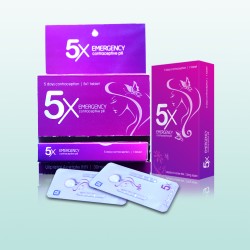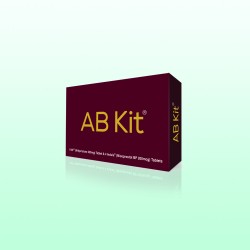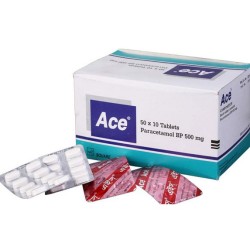Omnitrope 3.3mg/ml Injection 15mg cartridge 1's

Omnitrope 3.3mg/ml Injection 15mg cartridge 1's
৳ 9,000.00/=
Ex Tax: ৳ 9,000.00/=
- Stock: In Stock
- Model: MEDI-00159
- Generic: Somatropin
- Pack Size: Each pack contains 15mg cartridge of 3.3mg/ml Omnitrope Injection 1's
0 items sold
1878 views
Available Options
Indications
Children’s growth disorders,
Chronic renal failure,
Growth hormone deficiency,
HIV-associated wasting or cachexia,
Intrauterine growth retardation,
Prader Willi syndrome,
Severe idiopathic short stature,
Short bowel syndrome,
Sjogren’s syndrome
Therapeutic Class
Drugs for Growth failure
Pharmacology
Somatropin is a synthetic human growth hormone of recombinant DNA origin. It stimulates skeletal and soft tissue growth by promoting cell division, amino acid uptake and protein synthesis. It also possesses both insulin-like and diabetogenic effects.
Dosage & Administration
Children with short stature homeobox-containing (SHOX) deficiency:
- Child: 50 mcg/kg/day may be used.
- Child: 45-50 mcg/kg or 1.4 mg/m2 daily.
- Child: 35 mcg/kg or 1 mg/m2 daily. Max: 2.7 mg daily.
- Adult: Initially, 6 mcg/kg daily. May increase gradually according to patient response. Max: 12.5 mcg/kg/day. Reassess 9 mth after starting treatment.
- Child: 25-35 mcg/kg daily. Reassess 9 mth after starting treatment.
- Elderly: Lower doses may be required.
- Adult: 100 mcg/kg/day for 4 wk. Max: 8 mg/day.
- Adult: 0.1 mg/kg daily at bedtime. May be taken on alternate days for patients at increased risk of adverse effects. Max: 6 mg/day.
Interaction
High doses of corticosteroid may inhibit growth-promoting effects of somatropin.
Contraindications
Acute critical illness due to heart or abdominal surgery, multiple accidental trauma or respiratory failure; active neoplasms, proliferative or preproliferative diabetic retinopathy; lactation; patients with closed epiphyses. Intracranial lesions. Patients with Prader-Willi syndrome who are severely obese or have severe respiratory impairment.
Side Effects
Hypothyroidism, peripheral oedema; headache; muscle and joint pain; benign intracranial hypertension. Loss of glycaemic control in diabetics.
Pregnancy & Lactation
Pregnancy Category B: Either animal-reproduction studies have not demonstrated a foetal risk but there are no controlled studies in pregnant women or animal-reproduction studies have shown an adverse effect (other than a decrease in fertility) that was not confirmed in controlled studies in women in the 1st trimester (and there is no evidence of a risk in later trimesters).
Precautions
Monitor thyroid function; benign intracranial hypertension. DM; may require dose reduction in insulin. Pregnancy. Discontinue treatment if there is evidence of tumour growth. Monitoring in patients with scoliosis is recommended due to risk of progression of scoliosis.
Storage Conditions
Store at 2-8° C.
Source: medex.com.bd








